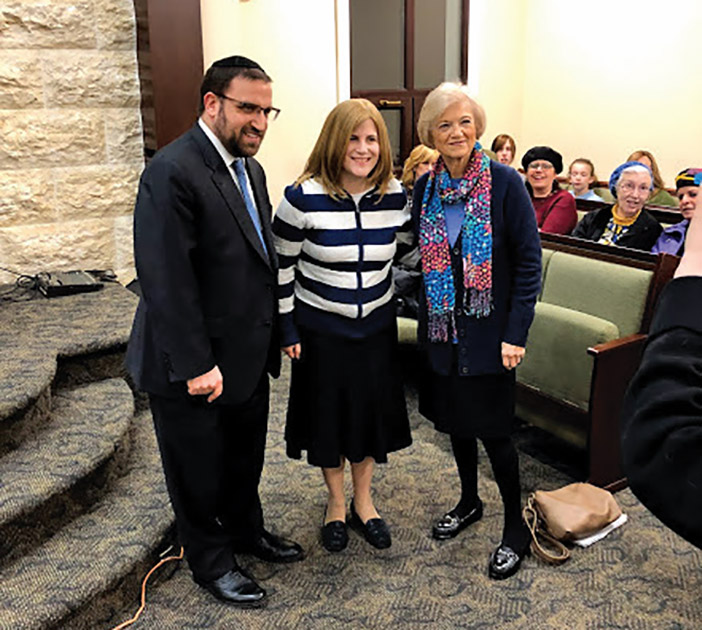

“I was born in 1933, and I have to say it was the same year that Hitler came to power. On one hand it was a happy occasion, on the other, I didn’t know what was coming for me and everyone else.” By the end of Toby Levy’s lecture at the Young Israel of Passaic-Clifton last Wednesday night, the audience would know exactly what she and her family experienced.
Levy’s early years were spent in Chodorow, Poland, which is now the Ukraine. Her father, Moshe Eisenstein, a soldier in the first World War, was a merchant who was well respected by Jews and non-Jews alike. Levy’s tale is full of stories about how her industrious father took care of his family by foreseeing what the Russians and eventually the Germans would do. Before each attack or takeover, her father had a plan.
In June of 1941 Hitler launched Operation Barbarossa against the Russians, one of the largest attacks in world history. The Russian army was pushed back, and Chodorow was occupied by the Nazis. Levy’s life was irrevocably changed. She and eight other relatives were nine of the 31 Jews in Chodorow to survive the war, hidden by a few non-Jewish families.
When the Germans marched into Chodorow in 1941 they called: “‘All the Jews, out into the winnick, the square.’ What I remember is the boots,” said Levy, “and the uniforms, and they looked so elegant, but their voices screaming and yelling, dehumanizing, and I’m pulling on to my father and saying ‘What are they screaming about?’”
“Quiet, no talking,” her father said.
“And from then on us kids kept quiet. We realized that the parents can’t help us. Can’t do anything for us. All we can do is hold onto hands,” Levy said.
When they got home that night Levy’s father, a realist, turned to her mother and said, “None of us are going to make it. We’re all dead. Unless it’s a miracle, or we’re so alert, and we look around, but without help from our neighbors, no one will make it.” And he was right.
Soon after, the Germans informed the Jews of Chodorow that they were being relocated to the nearby town of Lvov. Levy’s father said, “I don’t believe them. We’re not going.”
“My father was a genius,” said Levy. And by example after example she proved it. If her father needed a hiding place, he became an engineer, breaking down walls and reconstructing entranceways. If they needed a place where they could stay for years, he found a benefactor. If they had to cross a border with gold, he’d trade their clothes to make their way.
Instead of taking the train to Lvov, Eisenstein found shelter for the family with an old customer from his fabric store, Stephanie Struck, who hid them in her backyard barn. Eisenstein gave her money to buy livestock so that no one would suspect anything when she went to the barn with food.
The train to Lvov stopped immediately after leaving Chodorow. All the Jews were shot.
Three months into their hiding, there was a harrowing near miss involving a Ukrainian soldier in search of pigs and chickens. After that incident, Struck informed them she could no longer hide them. “My kids don’t know you’re here. Leave. You must leave in two days.“
Just as they were to be split up, Struck’s son, hearing the story of the Jews in the backyard, insisted that they stay.
Levy and her family would remain hidden in that barn until the Red Army liberated them in 1944.
In 1949, the Eisenstein family emigrated to America. Levy’s father chose the road less traveled, and settled them in New Orleans.
Levy’s discussion of moving to the U.S. finally moved her to tears. “We came to America on the General Black, an army boat. But when we came to go down the [Mississippi] river, oh. This was…ah,” her voice choked up. “It was really emotional.”
Levy did not cry during her tales of the horrors experienced in Europe; rather, she cried upon remembrance of her family’s redemption. She is not an angry woman—quite the opposite, she is a grateful woman.
Throughout the war years Levy’s clairvoyant father kept saying, “No way will the Germans win. Someone will have to survive. Someone has to make it to tell what happened.”
Levy is that someone.
By Alissa Joseph









